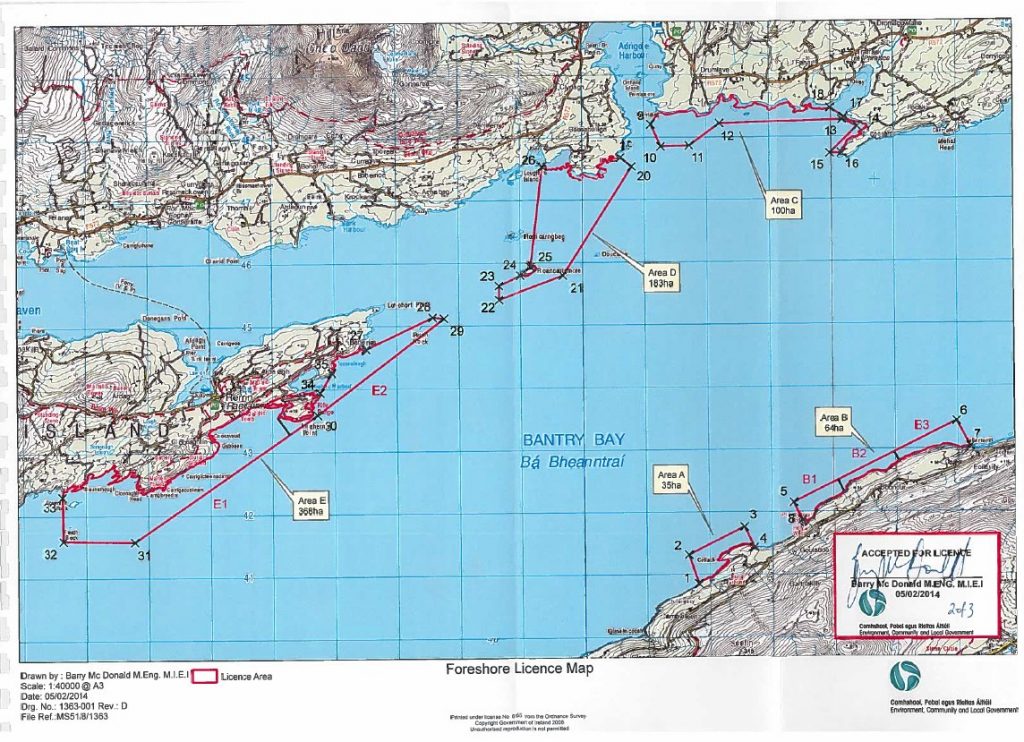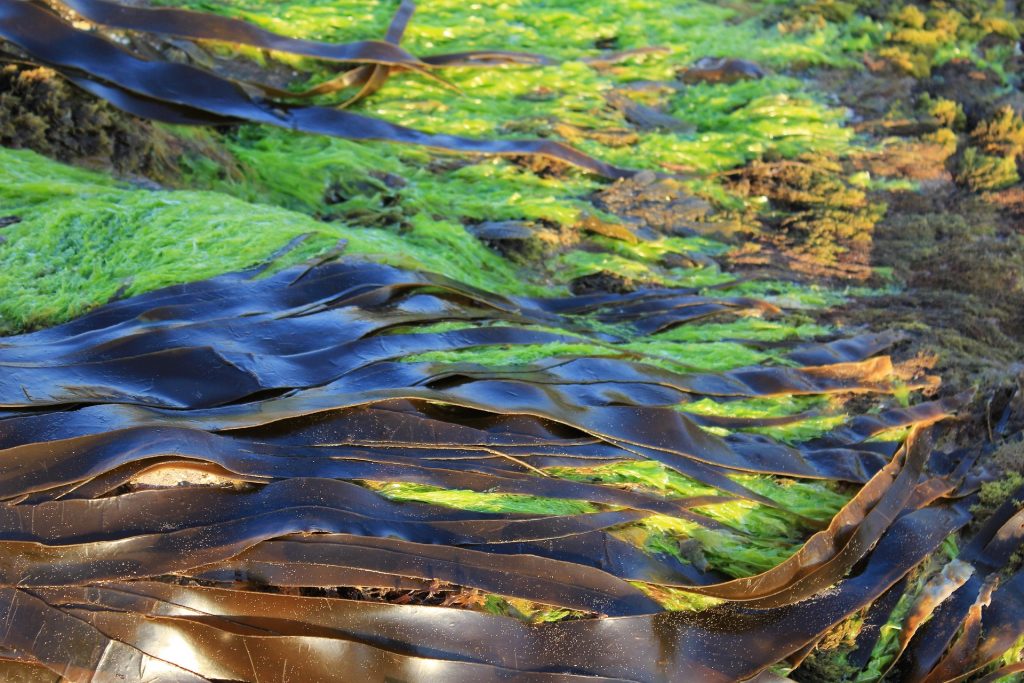Mechanical harvesting threat to kelp in Bantry Bay, court hears

May 15th, 2019
Kelp – a keystone marine species – will be put under threat in Bantry Bay by proposed mechanical harvesting of an area the size of Phoenix Park, the High Court heard today.
The community group Bantry Bay – Protect our Native Kelp Forests has brought a Judicial Review (JR) of the granting of a seaweed harvesting licence by the Department of Planning to BioAtlantis Aquamarine Ltd.
Prior to the commencement of the JR case, Ms Justice Deirdre Murphy is today hearing injunction proceedings brought by the Bantry Bay group seeking to prevent any harvesting until the judicial review process is completed.
BioAtlantis, the Tralee-based biotechnology group behind the project, is seeking to harvest kelp in just over 1,800 acres of the Bay.
The licence – sought in 2009 and granted in 2014 – allows for ten-year experimental large-scale harvesting of kelp seaweed by mechanical means, the first of its kind in Ireland.
Last year, the current Minister for State at the Department of Housing, Planning and Local Government Damien English gave BioAtlantis the final green light to go ahead with the project.
The Bantry Bay group, however, fear the harvesting operation would have consequences for the environment, marine life, the fishing industry and tourism in their area.
The Bay itself is home to white-tailed eagles, otters, seals, and dolphins, with humpback whales and basking sharks known to feed in the Bay’s waters.

‘High ecological significance’
Kelp forests – often described as the rainforest of the sea – provide food, shelter, habitats, and nursery for numerous marine and bird species, as well as acting as an important carbon sink.
As such, James Delvin SC, counsel for the applicant John Casey, told the court this morning that kelp forests are of “high ecological significance”.
Referencing a 2005 study by the National Parks and Wildlife Service (NPWS) on the role of kelp in the marine environment, Mr Devlin said that kelp is a “keystone species” that supports a “rich understory of flora and fauna”.
If harvesting goes ahead, Mr Devlin said, the kelp plants will be sucked into the boat and processed in a plant in Tralee, where BioAtlantis plans to use the seaweed to develop antibiotics alternatives for cattle.
This will affect the normal course of affairs, Mr Devlin said, where kelp would otherwise end up on the seafloor or washed onshore as part of the “complex recycling system” found in the natural world.
Mr Devlin said that if older kelp, in particular, is cut, this will “affect the canopy” and will impact other species dependent on the kelp.
The NPWS study itself states that the licensing of mechanical harvesting on an area of the seafloor would “effectively sacrifice resident biological communities from reaching their natural equilibrium”.
“The development of a mechanical kelp industry in Ireland would present a challenge for fisheries management in terms of marine biodiversity as it could impact on the habitat of species that have not previously received much attention scientifically,” the study adds.

The study finds that such activities should “not be permitted” in any Irish protected nature sites in the EU’s NATURA 2000 list.
While the Bay itself is not a Natura 2000 site, Mr Devlin said that some of the licensed areas are close to protected sites, adding that case law shows that just because an activity is outside a protected area “doesn’t mean that you don’t have to consider the potential impact on these sites”.
Mr Devlin also cited the NPWS report that states mechanical kelp harvesting should not be conducted “near important breeding bird colonies, near important sites for wintering shorebirds and waterfowl or near important staging areas for migratory birds”.
In Ireland, seaweed has been traditionally harvested by hand and the industry – worth an estimated worth €18 million – is still relatively small by international standards.
The case continues this afternoon and both the injunction and JR proceedings combined are expected to last six days.
[x_author title=”About the Author”]







